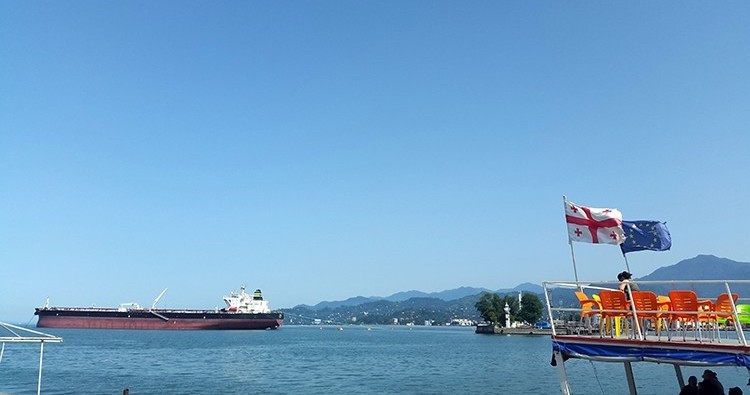Finance Minister explains customs clearance procedures in wake of “speculations” on sanctions enforcement

In a Facebook post the Minister broke down the clearance process and explained why the customs authorities in the Black Sea port of Batumi had rejected services to a freight ship that arrived in the port on Sunday and intended to re-export oil products to Turkey. Photo: Nino Alavidze/Agenda.ge
Georgian Finance Minister Lasha Khutsishvili on Monday explained procedures undertaken by professionals at customs clearances in Black Sea ports of the country in a social media post following what he called public "speculations” on the enforcement of sanctions imposed on Russia by the international community for its invasion of Ukraine.
In a Facebook post the Minister broke down the clearance process and explained why the customs authorities in the Black Sea port of Batumi had rejected services to a freight ship that arrived in the port on Sunday and intended to re-export oil products to Turkey.
Khutsishvili said freight ships entering Georgian ports first had their cargo inspected by the Maritime Agency, with both vessels and their owner companies checked for sanctions and permitted to enter the country’s seaports in case neither were subject to the sanctions.
Upon entering ports, the owner of the cargo makes a relevant application to the customs authority for import, transit, re-export or warehousing, the official noted. Cargo inspection is carried out by the customs authority within the premises of the port, while compliance of the cargo with the sanctions is also checked, he added.
"[In the case of the ship that entered the Batumi Port], [g]iven that the destination of the cargo was not the countries that imposed the sanctions (United States, United Kingdom, Japan, European Union member states) and the final destination of the cargo was Turkey - which has not imposed sanctions - there were no direct questions [remaining] about the cargo’s compliance”, he said.
“In the process of verification, the company that shipped the cargo was also checked, and it turned out to be a sanctioned one. Consequently, the customs authorities rejected services to the freight ship. The vessel [later] left the port with the cargo", Khutsishvili noted.
The Minister said cargo entering the Georgian territory by land or air was also checked through similar procedures.
 Tweet
Tweet  Share
Share